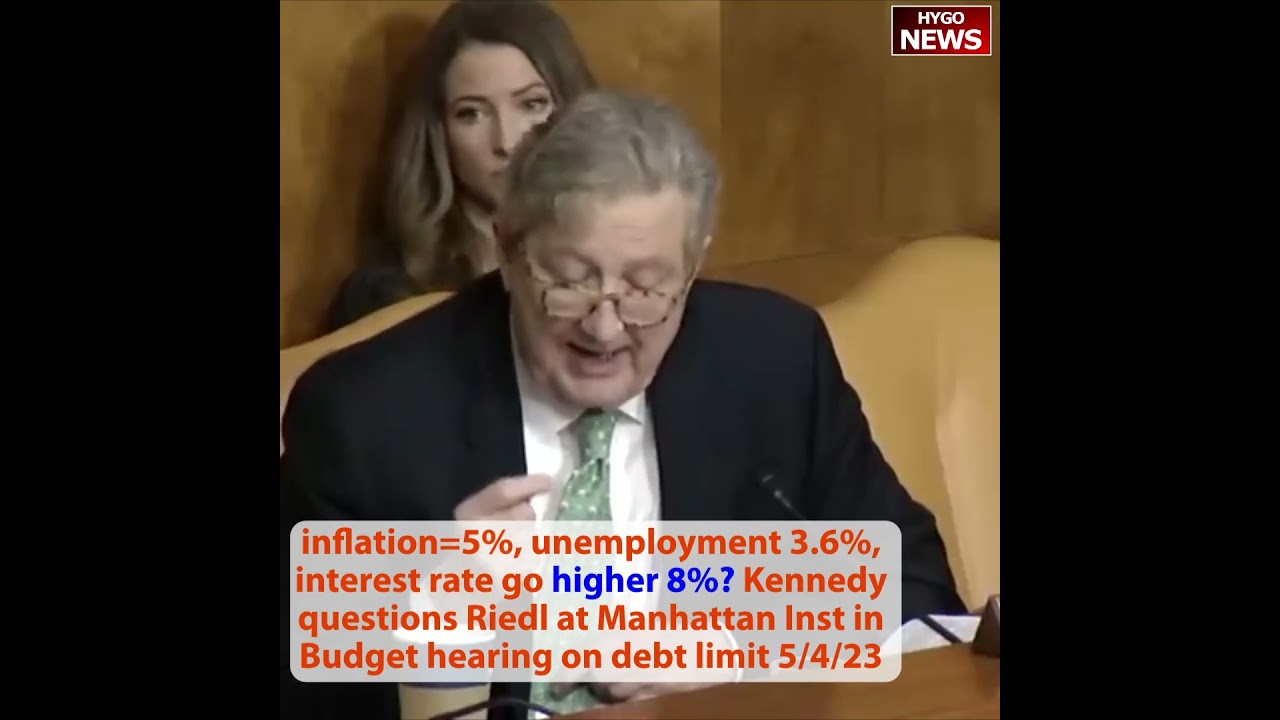#shorts Kennedy questions Riedl at Manhattan Inst in Budget hearing on debt limit
Kennedy: Did you know that if you look at history, at all ten of these times when we had to reduce inflation, that in order to get inflation down two percent, we had to raise, on average, um, the Federal Reserve had to raise interest rates such that it raised unemployment about 3.6 percent. Did you know that?
Riedl: That is correct, that sounds similar to what Mr. Summers has said. He’s made similar points. That one’s very correct.
Kennedy: Okay, all right. so, the current unemployment rate is 3.5 percent, is it not?
Riedl: Yes.
Kennedy: And the current inflation rate is five percent, is it not?
Riedl: approximately
Kennedy: So, if history tells us that in order to get inflation down two percent, the Federal Reserve has to raise interest rates such that it increases unemployment 3.6 percent, then if you do the math, given that the current unemployment rate is three and a half percent and the current inflation rate is five percent, that would indicate, would it not, that the Federal Reserve, if history is any indication, will probably have to eventually raise interest rates to between seven and eight percent. Is that correct?
Riedl: It could have to go that high, depending on how the economy responds to current
On 5/4/2023, The United States Senate Committee on the Budget held a hearing on the Republican debt limit bill passed in the House. Witnesses include Mark Zandi, Chief Economist at Moody’s Analytics; Abigail Ross Hopper, President and CEO of Solar Energy Industries Associations; Brian Riedl, Senior Fellow at Manhattan Institute. They testified before the Senate Budget Committee as the panel holds a hearing on the Republican proposal to address the debt limit, which passed in the House last week, at the Capitol in Washington.
other clips of this published longer video is here: https://youtu.be/zTAfR-eN00I
Inflation=5%, unemployment 3.6%, interest rate need to go higher between 7% to 8%?

